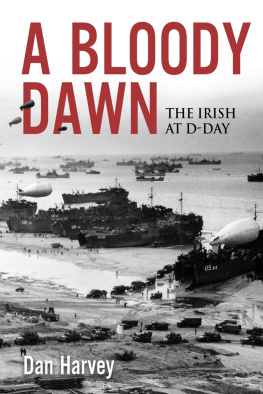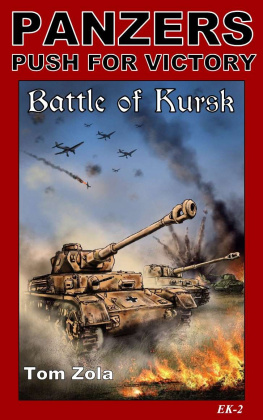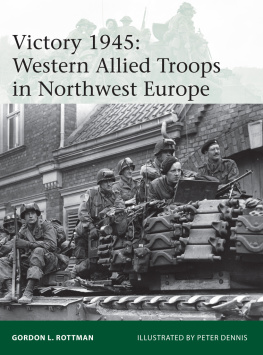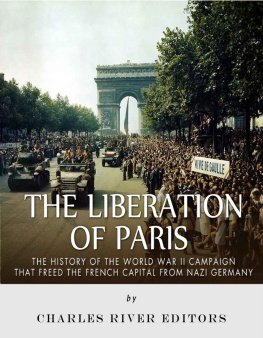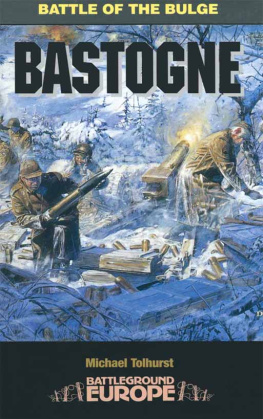Lieutenant Colonel Dan Harvey , now retired, served on operations at home and abroad for forty years, including tours of duty in the Middle East, Africa, the Balkans and South Caucasus, with the UN, EU, NATO PfP and OSCE. He is the author of Soldiering against Subversion: The Irish Defence Forces and Internal Security During the Troubles, 19691998 (2018); Into Action: Irish Peacekeepers Under Fire, 19602014 (2017); and Soldiers of the Short Grass: A History of the Curragh Camp (2016).
ALSO IN THIS SERIES
A Bloody Day: The Irish at Waterloo (2017)
A Bloody Night: The Irish at Rorkes Drift (2017)
A Bloody Dawn: The Irish at D-Day (2019)
A Bloody Week: The Irish at Arnhem (2019)
First published in 2020 by
10 Georges Street
Newbridge
Co. Kildare
Ireland
www.merrionpress.ie
Dan Harvey, 2020
9781785373336 (Paper)
9781785373343 (Kindle)
9781785373350 (Epub)
9781785373367 (PDF)
British Library Cataloguing in Publication Data
An entry can be found on request
Library of Congress Cataloging in Publication Data
An entry can be found on request
All rights reserved. Without limiting the rights under copyright reserved alone, no part of this publication may be reproduced, stored in or introduced into a retrieval system, or transmitted, in any form or by any means (electronic, mechanical, photocopying, recording or otherwise), without the prior written permission of both the copyright owner and the above publisher of this book.
Typeset in Bembo MT Std 11/15 pt
Front cover: John ONeill, Bere Island, Co. Cork (back right) with the Northumberland Fusiliers in Holland, September 1944.
Image courtesy of Sarah Bermingham.
Back cover: Major the Lord Rathdonnell receiving the Military Cross from Field Marshal Montgomery, 12 August 1945. Tyne & Wear Archives & Museums/Bridgeman Images.
ACKNOWLEDGEMENTS
The Second World War was won with the help of the brave men and women who fought for the Allies in their hour of need. Those that took a principled stand against tyranny, for whatever motivation, ought to be respected rather than ignored. It is all too profound that it was an Irishman, Edmund Burke, who is attributed with the words, All that is necessary for the triumph of evil is that good men do nothing.
When it mattered, the Irish did far from nothing. It is now an established fact that large numbers of Irish men and women fought with the Allies to save Europe from the evils of Nazi fascism. This is something that the Irish have become increasingly aware of over more recent decades. Because this involvement was more comprehensive than previously thought, it is now necessary to recalibrate our understanding of this heretofore underrated participation.
Irelands double-edged ambiguity, arising from the States pragmatic neutral stance during the war, has created many misunderstandings and misperceptions, giving rise to much misinformation, whereas for many of the Irish there was a clear-cut course of action to be taken. The Irish were among the rangers, the commandos and the commanders; the airmen in the skies above and the sailors on the ships at sea. They all accepted the risks and exposed themselves to harm; they put themselves into the line of fire by entering deadly battle spaces, from the wars very beginning to its very end.
I wrote this book to make people aware that those Irish men and women who participated in the war were part of a broad, outward-looking nationalistic narrative, acting for Ireland and standing shoulder to shoulder with the Allies. On Remembrance Sunday 2019, at St Patricks Cathedral in Dublin, Canon David Oxley, the prebendary of St Audoens, reported in The Irish Times that Irish neutrality in the Second World War was understandable from a political point of view. However, he added that, from a moral point of view,
it was hardly possible to remain neutral in the face of the kind of evil represented by fascism. Many individual Irishmen and women did in fact take sides and volunteered to oppose Nazism in arms, and we commemorate their sacrifice this afternoon. And I suppose what I want to say to you is just this: in the conflict between right and wrong, truth and falsehood, neutrality is not an option.
These Irish men and women deserve our grateful appreciation and to be rightfully honoured not written out of Irish history, taken off the beaches at D-Day, the bridge at Arnhem, the skies above in the Battle of Britain, or the many other battles during the war. Instead, they ought to be put centre stage; they ought to be in our school textbooks as examples of courage, character and commitment to steadfast values of resilience, fighting to maintain our freedoms, values and our democratic way of life. Indifference, indecision and uncertainty in the face of challenges to these freedoms are a threat one which could unravel the very fabric and fortitude at the core of our being. Peace and freedom cannot be taken for granted and must be valued and defended.
I am grateful, therefore, to all those who gave me new information about those who contributed to the war effort. Specifically, I would like to thank Peter Byrne, Commandant (retd), who supplied an account of his cousin, US Ranger Sergeant Pearse Edmund Ed Ryan, at Pointe du Hoc on D-Day. Thanks also to Tom Burns, who made me aware of his father James Gerald Jimmy Burns and his participation with Bomber Command, and to Brian Wallace, who showed me the (flying) log book of his father, William Andrew Bill Wallace, who was shot down over the beaches on D-Day. To Sarah Bermingham, who contributed detail about her uncle John ONeill and his involvement at Arnhem, I am indebted. To Turtle Bunbury, who informed me of his grandfather William Robert McClintoch Bunbury, I am similarly thankful. Sincere thanks also to Conor Graham, Maeve Convery and Patrick ODonoghue at Merrion Press for handling the books publication, Deirdre Maxwell for typing out the hand-written manuscript, Myles McCionnaith for editing the manuscript, and Paul OFlynn for his technical assistance.
PREFACE
The Fhrer was dead. Hitler had ended his own life in his command bunker under the Reichstag Chancellery building in Berlin. German wireless transmitted an announcement on 1 May 1945 that Admiral Doenitz had been appointed to succeed him as Fhrer, and the Allies had picked up the news. Already long certain of the pointlessness of continuing hostilities, the Wehrmacht (German army) sent communications to the Allies to open negotiations for surrender. In response, the Allies had insisted on any terms being unconditional. A surrendering document was drawn up by the Supreme Headquarters Allied Expeditionary Force; the German delegation arrived in Reims to sign it, and when the German generals signed the unconditional surrender on 7 May, the Supreme Allied Commander in Europe, US General Dwight D. Eisenhower, asked Kay Summersby (formerly MacCarthy-Morrogh) from Inish Beg House, Baltimore, County Cork, to stand in the historic photographs and film. The war was over and at its official ending the Irish were there.


